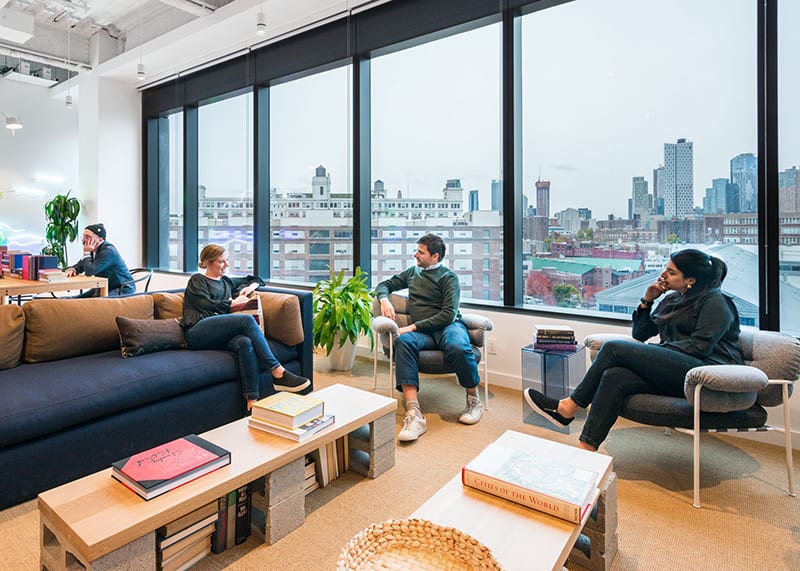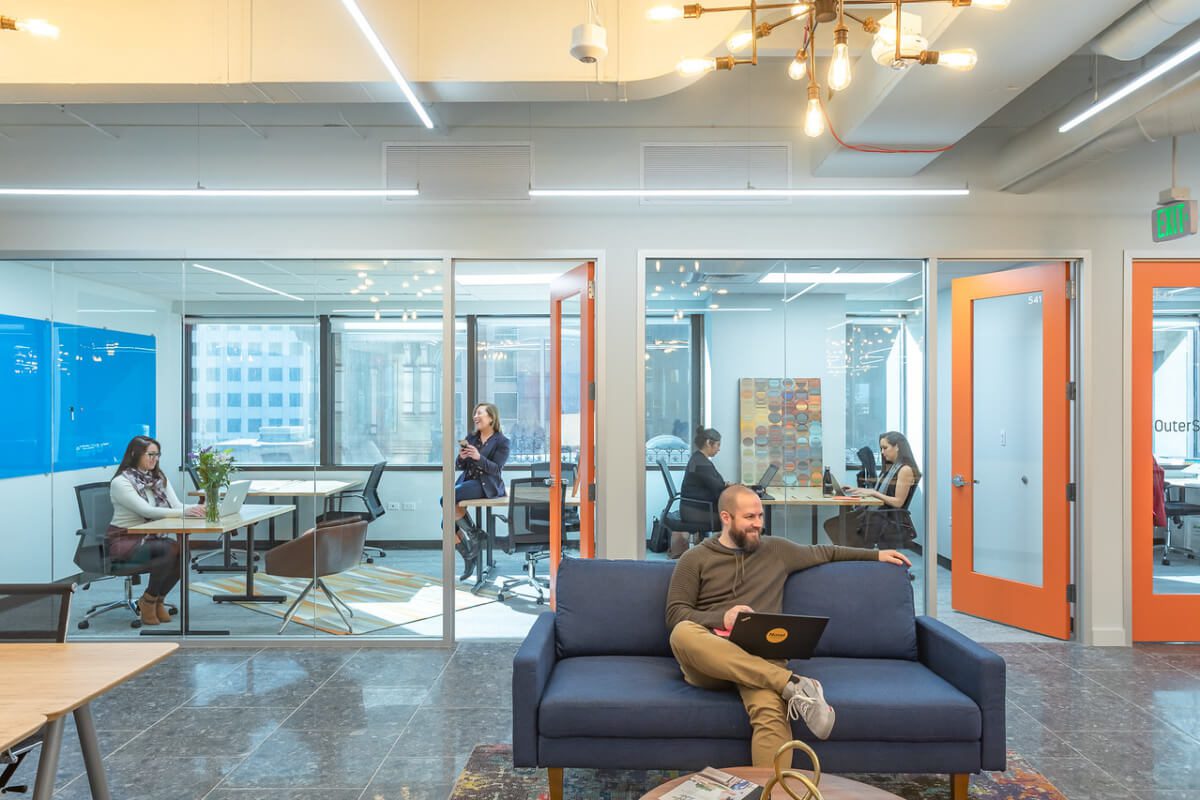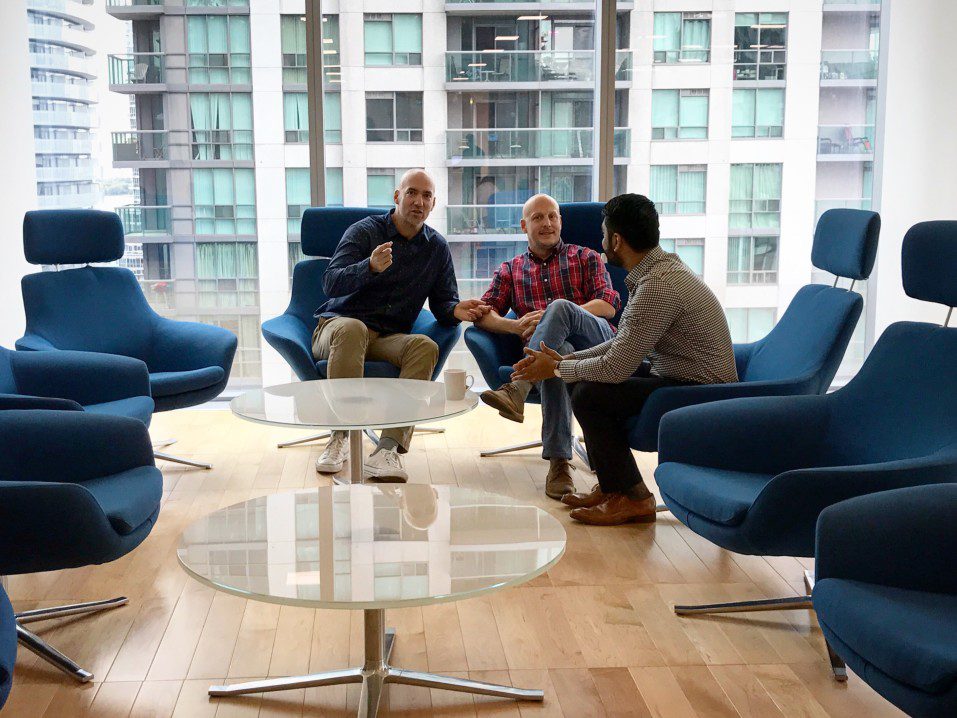Coworking space is an innovative concept that has grown tremendously in recent years. It has transformed how people work, offering an alternative to traditional office environments. This article will explore the key differences between coworking spaces and traditional offices, providing valuable insights into the pros and cons of each.

Coworking Space: Embracing the Future of Work
What is a coworking space? It is a shared working environment where individuals from different companies or freelancers can work independently or collaboratively. It provides a flexible and cost-effective alternative to traditional office spaces and is designed to foster creativity, networking, and productivity.
What are the Advantages of Coworking Spaces?
- Flexibility: Coworking spaces offer flexible membership options, allowing individuals and businesses to choose plans that best suit their needs, whether a day pass, part-time membership, or a dedicated private office.
- Cost-efficiency: Coworking spaces eliminate the need for significant upfront investment and ongoing operational costs. Members can access amenities and facilities on a pay-as-you-go basis, making it more affordable for startups and freelancers.
- Networking Opportunities: One of the most significant advantages of coworking spaces is the diverse community they foster.
- Increased Productivity: Coworking spaces are designed to create a conducive environment for productivity. The shared workspace promotes focus and minimizes distractions, offering quiet zones, dedicated meeting rooms, and comfortable breakout areas.
- Amenities and Services: Coworking spaces typically provide a range of amenities such as high-speed internet, printing facilities, free coffee, and access to conference rooms.
- Flexibility to Scale: Coworking spaces offer the flexibility to scale up or down as needed. Startups and small businesses can quickly expand their operations by upgrading their membership or renting additional private offices within the coworking space.
What are the Disadvantages of Coworking Spaces?
- Lack of Privacy: While coworking spaces encourage collaboration, privacy can sometimes be a concern. Open-plan layouts and shared spaces may not provide the level of confidentiality required for specific sensitive discussions or tasks.
- Limited Branding Opportunities: For businesses looking to establish a strong brand presence, coworking spaces may present challenges as they often have a neutral aesthetic.
- Noise Levels: With a vibrant and dynamic community, coworking spaces can sometimes be bustling with activity. It can increase noise levels, which may not be ideal for those who prefer a quieter and more focused work environment.
Coworking spaces have become increasingly popular due to the rise of remote work and the need for flexible working environments that promote collaboration and innovation. They cater to a wide range of professionals, including freelancers, remote workers, startups, and even employees of bigger corporations seeking temporary office solutions for specific projects or tasks.

Traditional Office: A Tried-and-True Approach
A traditional office (or office space for rent) is a dedicated and privately-owned workspace used by employees of a single company or organization to carry out their work activities. In this setup, the company typically leases or owns the entire office space for the exclusive use of its staff members.
What are the Advantages of Traditional Offices?
- Enhanced Privacy: Traditional offices offer a higher level of privacy compared to coworking spaces. Separated workspaces allow for confidential discussions and focused work without the potential distractions of a shared environment.
- Customization: It allows companies to create a cohesive environment reflecting their brand identity and culture.
- Dedicated Space: Traditional offices provide businesses with a dedicated space solely for their team.
What are the Disadvantages of Traditional Offices:
- Higher Costs: Setting up and maintaining a traditional office can be a significant financial investment. Rent, utilities, maintenance, and furniture expenses are just a few ongoing costs businesses must bear.
- Limited Flexibility: Traditional offices often require long-term leases and commitments, limiting a business’s ability to adapt quickly to changing circumstances or downsizing needs.
- Isolation: Working in a traditional office may lack the social opportunities and diverse community that coworking spaces offer.
Traditional office spaces benefit large corporations, businesses with specialized infrastructure needs, client-facing industries, compliance-driven sectors, and those seeking stability and privacy. However, with the rise of remote work and coworking spaces, businesses now have more flexible options.
Factors to Consider When Choosing an Office Space
When choosing between a coworking space and a traditional office, several factors must be considered. Each option has advantages and disadvantages, and your decision should be based on your needs and preferences. Here are some essential factors to consider:
Cost
Evaluate the financial implications of both options. Consider upfront costs, monthly expenses, and additional fees for each choice. Determine which option aligns better with your budget and financial goals.
Flexibility
Assess the flexibility you require regarding lease terms, office space, and scalability. Coworking spaces offer more flexible membership options and the ability to scale up or down as your business needs change quickly. Traditional offices typically involve longer leases and may not provide the same level of flexibility.

Workspace Needs
Consider your workspace requirements. Coworking spaces provide shared work areas, private offices, and various amenities. In contrast, traditional offices offer dedicated spaces that can be customized to fit your brand and company culture.
Privacy and Confidentiality
Determine the level of privacy required for your business operations. Traditional offices typically offer more privacy, with separate workspaces and closed meeting rooms. In contrast, coworking spaces have open layouts and shared spaces, which may not be suitable for confidential discussions or tasks.
Networking and Collaboration
Coworking spaces foster a diverse community of professionals from various industries, providing ample opportunities for networking, partnerships, and knowledge sharing. Traditional offices are more focused on internal collaboration.
Location and Accessibility
Evaluate the location and accessibility of both options. Consider proximity to clients, employees, transportation hubs, and amenities like cafes and restaurants. Choose a workspace that is convenient and accessible for all stakeholders involved.
Company Size and Growth Plans
Consider your company’s size and growth plans. Coworking spaces are often suitable for startups, freelancers, and small teams looking for a flexible, cost-effective solutions. Traditional offices may be ideal for larger companies with a stable workforce and the need for dedicated spaces.

Work-Life Balance
Coworking spaces often provide a vibrant and social environment, promoting work-life integration. Depending on your preferences, traditional offices offer a more structured and separate work-life balance.
By carefully considering these factors, you can decide whether a coworking space or a traditional office fits your business. Remember to prioritize your specific needs, budget, and long-term goals.
Final Thoughts
Coworking spaces have revolutionized the way people work. However, it is important to acknowledge that traditional offices still hold advantages for certain businesses, particularly those requiring privacy and customization. Ultimately, the choice between a coworking space and a traditional office depends on your specific needs and preferences.

Enterprise software development experience. More recently in positions including CTO, Lead Developer and Head of Product in Australia. Deep expertise in property and legal technology in Australia with a specialty in lead generation and tech scalability across Asia-Pacific.